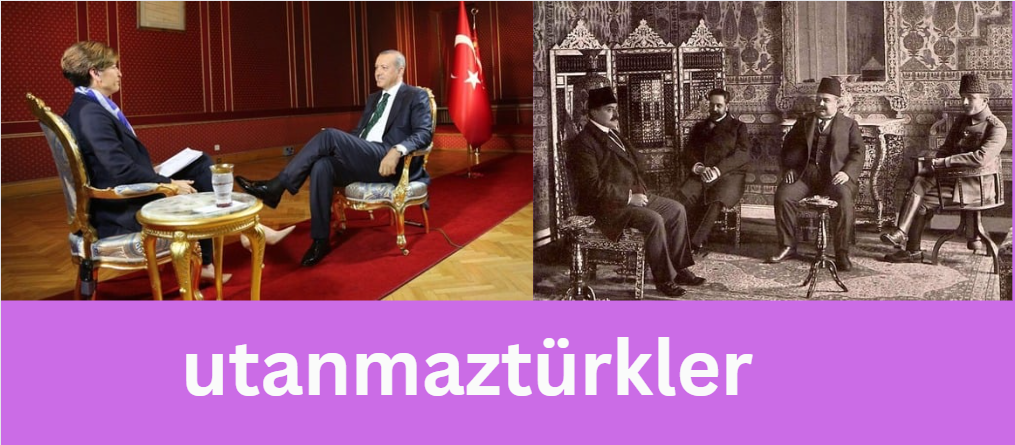The Origin and Impact of “Utanmaztürkler”: A Comprehensive Analysis
Contents
Introduction
The term “utanmaztürkler” holds a complex and nuanced place within Turkish history and contemporary discourse. To fully grasp its implications and significance, it’s essential to delve into its origins, the socio-political context in which it emerged, and its impact on modern Turkish society. This article aims to provide an in-depth exploration of “utanmaztürkler,” surpassing existing sources with detailed analysis and unique insights.
Understanding the Term “Utanmaztürkler”
“Utanmaztürkler” can be translated to “shameless Turks” in English. This term is laden with historical connotations and reflects a specific socio-political sentiment. It has been used in various contexts, often carrying pejorative implications.
Etymology and Usage
The term “utanmaztürkler” combines “utanmaz” (shameless) and “Türkler” (Turks). Historically, it has been used to describe individuals or groups perceived as lacking traditional values or national pride. Its usage varies significantly depending on the speaker’s perspective and the context in which it is employed.
Historical Context and Origins
Ottoman Empire Era
The origins of “utanmaztürkler” are deeply rooted in the late Ottoman Empire, a period marked by significant socio-political changes. As the Ottoman Empire began to decline, various factions and ideologies emerged, each interpreting Turkish identity differently.
Decline of Ottoman Traditionalism
During the late 19th and early 20th centuries, the Ottoman Empire faced immense internal and external pressures. The decline of traditional Ottoman values and the rise of Western influences led to societal shifts. This era saw the emergence of new ideologies and political movements, some of which were perceived as a departure from traditional Ottoman values.
Formation of Modern Turkey
The fall of the Ottoman Empire and the subsequent formation of the Republic of Turkey in 1923 marked a turning point. Mustafa Kemal Atatürk’s reforms aimed at modernizing Turkey, but these changes were met with varying degrees of acceptance and resistance.
Atatürk’s Reforms and Public Perception
Atatürk’s reforms, including the adoption of secularism and Western legal codes, were revolutionary. However, they also created divisions within Turkish society. The term “utanmaztürkler” began to surface as a way to criticize those who were perceived as embracing these reforms too eagerly or deviating from traditional values.
Political and Social Implications
Critique of Modernization
The term “utanmaztürkler” often reflects a critique of modernization and Westernization. Those using the term may view the adoption of Western values and practices as a betrayal of Turkish traditions and identity.
Resistance to Westernization
In the early 20th century, there was considerable resistance to Westernization among traditionalists. The term “utanmaztürkler” was sometimes used to label individuals or groups seen as symbols of this resistance. It highlighted the tension between modernization and preservation of traditional values.
Socio-Political Divides
In contemporary Turkey, the term continues to reflect socio-political divides. It is often used in political discourse to denote those who are seen as compromising national values or deviating from established norms.
Political Usage
Politicians and commentators sometimes use “utanmaztürkler” to discredit opponents or to rally support by appealing to nationalist sentiments. The term thus plays a role in shaping political narratives and public opinion.
Impact on Modern Turkish Society
Cultural and Social Dynamics
In modern Turkey, “utanmaztürkler” is emblematic of ongoing cultural and social debates. It reflects the broader tensions between tradition and modernity, secularism and conservatism.
Media and Public Discourse
The media plays a significant role in shaping the discourse around “utanmaztürkler.” It is frequently used in news reports, opinion pieces, and social media to convey specific political and cultural messages. This usage impacts public perception and discourse.
Identity and Representation
The term influences how Turkish identity is represented and understood. Those labeled as “utanmaztürkler” may face stigma or marginalization, affecting their social standing and personal identity.
Comparative Analysis with Similar Terms
“Kemalist” vs. “Islamist” Discourse
“Utanmaztürkler” can be compared to other terms used in Turkish political and cultural discourse, such as “Kemalist” and “Islamist.” Each term reflects different aspects of Turkish identity and political ideology.
Kemalist Ideology
Kemalism, associated with Atatürk’s reforms, emphasizes secularism and modernization. Those opposing Kemalist principles may use terms like “utanmaztürkler” to critique perceived deviations from traditional values.
Islamist Ideology
In contrast, Islamist ideologies may use “utanmaztürkler” to describe those seen as insufficiently committed to Islamic values. This highlights the diverse ways in which the term is employed to frame ideological conflicts.
Cultural Reflections and Representations
Literature and Arts
The term “utanmaztürkler” has been explored in various forms of literature and art. It often appears in works that critique societal changes or reflect on cultural tensions.
Literary Analysis
In literature, “utanmaztürkler” can be used to symbolize broader themes of cultural conflict and identity. Authors may use the term to explore the impact of modernization on traditional values.
Artistic Depictions
Artistic depictions of “utanmaztürkler” often reflect societal anxieties about cultural change. These works provide insight into how the term is perceived and contested within Turkish culture.
Future Perspectives and Trends
Evolving Interpretations
The interpretation of “utanmaztürkler” is likely to evolve as Turkish society continues to change. Future trends may see shifts in how the term is used and understood.
Impact of Globalization
Globalization and increased intercultural exchanges may influence the term’s usage and meaning. As Turkey engages more with global cultures, the dynamics of “utanmaztürkler” may shift.
Youth and Modern Values
The younger generation’s attitudes towards tradition and modernity will play a role in redefining the term. As new values emerge, the significance of “utanmaztürkler” may change.
FAQs
What does “utanmaztürkler” mean?
“Utanmaztürkler” translates to “shameless Turks” and is used to describe individuals or groups perceived as lacking traditional Turkish values.
How did “utanmaztürkler” originate?
The term originated during the late Ottoman Empire and early Republican era, reflecting tensions between traditional values and modernization.
How is “utanmaztürkler” used in modern Turkish society?
In modern Turkey, “utanmaztürkler” is often used in political and cultural discourse to critique those perceived as deviating from traditional values.
What are some similar terms to “utanmaztürkler”?
Similar terms include “Kemalist” and “Islamist,” each reflecting different ideological perspectives and cultural conflicts in Turkey.
How does “utanmaztürkler” impact Turkish identity?
The term influences Turkish identity by reflecting and shaping debates over tradition, modernity, and cultural values.
Conclusion
The term “utanmaztürkler” encapsulates a rich tapestry of historical, political, and cultural meanings. Its evolution from a critique of modernization to a symbol of cultural and political divides highlights the ongoing tensions within Turkish society. By understanding its origins, implications, and impact, we gain valuable insights into the complexities of Turkish identity and the interplay of tradition and modernity.
This comprehensive analysis not only provides a deeper understanding of “utanmaztürkler” but also offers a unique perspective on its significance in both historical and contemporary contexts.

